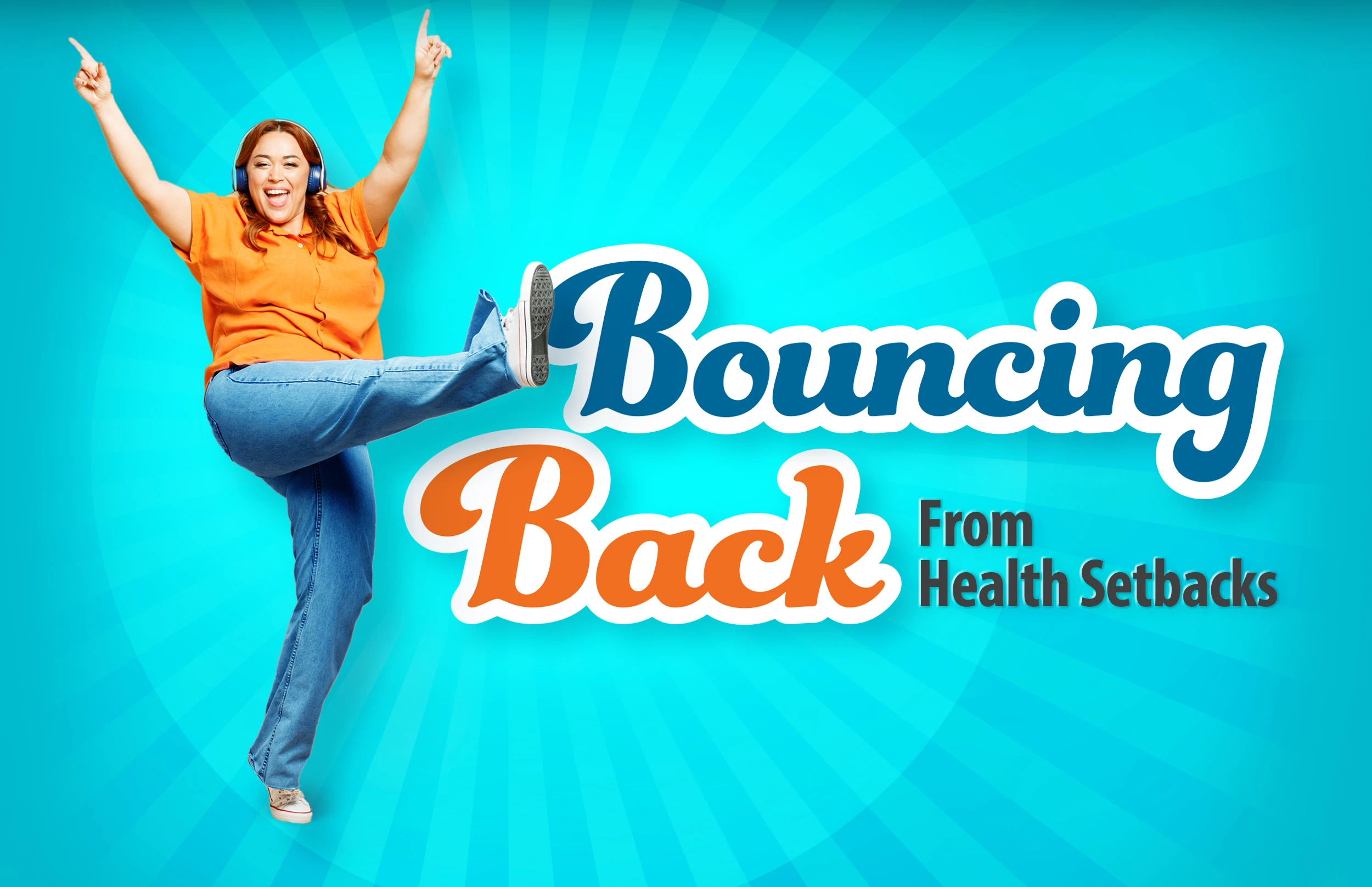
Bouncing Back from Health Setbacks
There are a lot of expressions when it comes to recovery – bounce back, rebound, rally. Even Aerosmith has a song about getting “Back in the Saddle.”
But when faced with health setbacks, it may not seem so funny that all of these expressions conjure images of sports. Instead of being motivated, you might feel frustrated, afraid or even sad.
Though setbacks can come in many forms, including injuries, surgeries, heart conditions, previous heart attacks and even COVID-19, there are some common ways to jump back into a heart-healthy routine with both feet.
First and foremost, following your doctor’s instructions or rehabilitation plan is essential. This may include physical therapy, medications and lifestyle changes. It’s also important to be patient with your body as it heals, so don’t push yourself too hard too soon. As the saying goes, “Slow and steady wins the race.”
Following our previous tips, such as maintaining a balanced diet, engaging in physician-approved exercise and getting plenty of rest, can help, too. However, don’t forget to prioritize self-care as you recover.
Practice stress management techniques like yoga or meditation, engage in activities that bring you joy and seek help from loved ones or support groups. And don’t forget to celebrate small wins, which can help maintain your motivation and confidence.
Remember, resilience is crucial when bouncing back. Setbacks are a natural part of life and do not define your future. We know you can overcome obstacles with the right mindset and heart-healthy strategies.

According to the American Heart Association, 61% of people hospitalized with COVID-19 had heart abnormalities, including scarring from a heart attack. A 2022 Smidt Heart Institute Study also found that heart attacks among people 25 to 44 increased by 30% post-COVID. Anyone who has been infected with COVID-19 is at a higher risk of heart problems, even if they do not have pre-existing conditions, so it’s important to have your heart tested.

Educate yourself about your setback and any warning signs to watch out for. The best way to prevent future health problems is to be proactive about your care. Schedule an appointment with your doctor if you have any concerning symptoms or questions about your recovery progress.

Are there days you feel sluggish? Though you might feel like you can’t get moving some days, next time, we’ll explain how movement can increase your energy and improve your heart health.